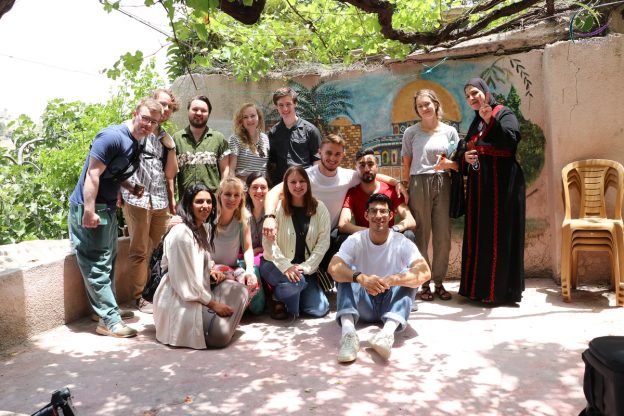You might have heard a lot about Palestine in the news, especially over the last couple of years. If you empathise with the Palestinian cause, you might have gone to some protests, shared some content on your social media, and had some conversations with your friends and family. But maybe you feel like you want to do something more. Maybe you feel like you want to come to show your support in Palestine itself.
If that’s the case, you also might be asking yourself a lot of questions about coming to the West Bank. Is it safe? How do I even get there? What is daily life like? At the Excellence Center Palestine, we have welcomed over 1000 volunteers since we began operating in 2011, all of whom have had a safe and positive experience. To help you answer your pre-travel questions, this article goes through some of the topics people most want to know about before coming to spend time in Palestine.
For any other questions, please don’t hesitate to reach out to our team at rafat@excellencecenter.org.
Table of Contents
The experience of living in Palestine
What is it like to live in Palestine? Let us tell you from an international perspective! One of our long-term volunteers from 2025, Eva, shares her experience:
“I’ve been in Palestine for nearly three months now, and my time here has been fantastic. I was welcomed with open arms from the moment I stepped into Hebron, and I really feel like I have become part of the family. Day-to-day life feels normal in the H1 part of the city where the Excellence Center is located. There are a lot of lovely restaurants and cafes nearby, and amenities like ATMs and supermarkets.”
During her weekends, Eva would often travel to different parts of the West Bank to see the beauty of the landscape and see how life was different in some of the cities. “I have had the privilege of traveling around the West Bank a lot, going to cities like Bethlehem, Jerusalem, Ramallah, and Nablus. When you travel and when you talk to people is when you really see the impact of the occupation and the limitation on people’s movement. Part of the experience is that you might have to wait in traffic queues or show your ID at a checkpoint.”
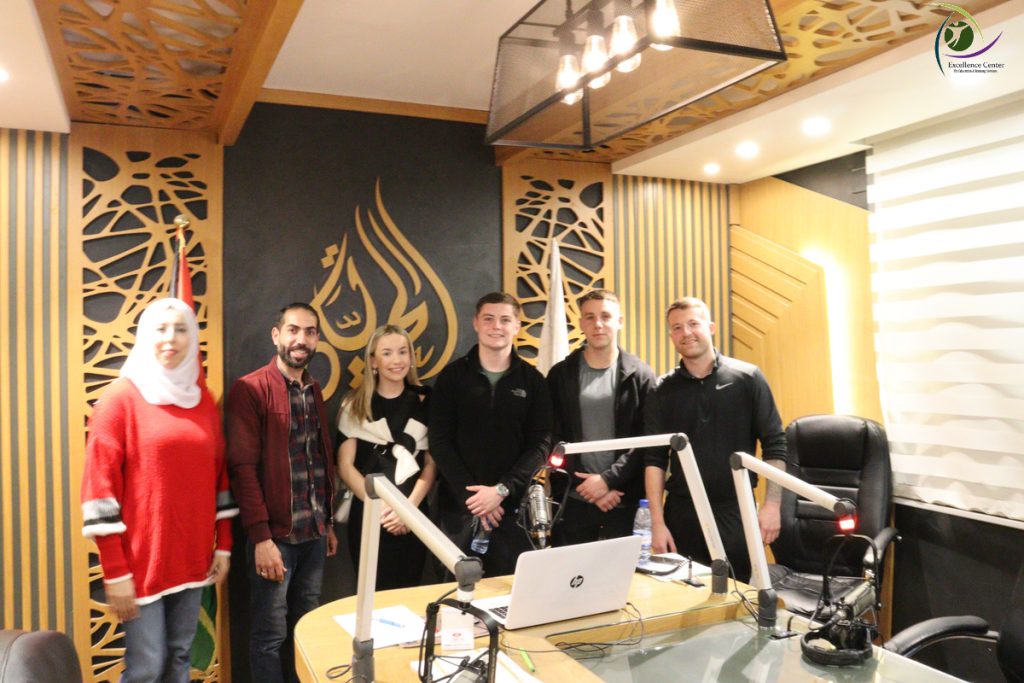
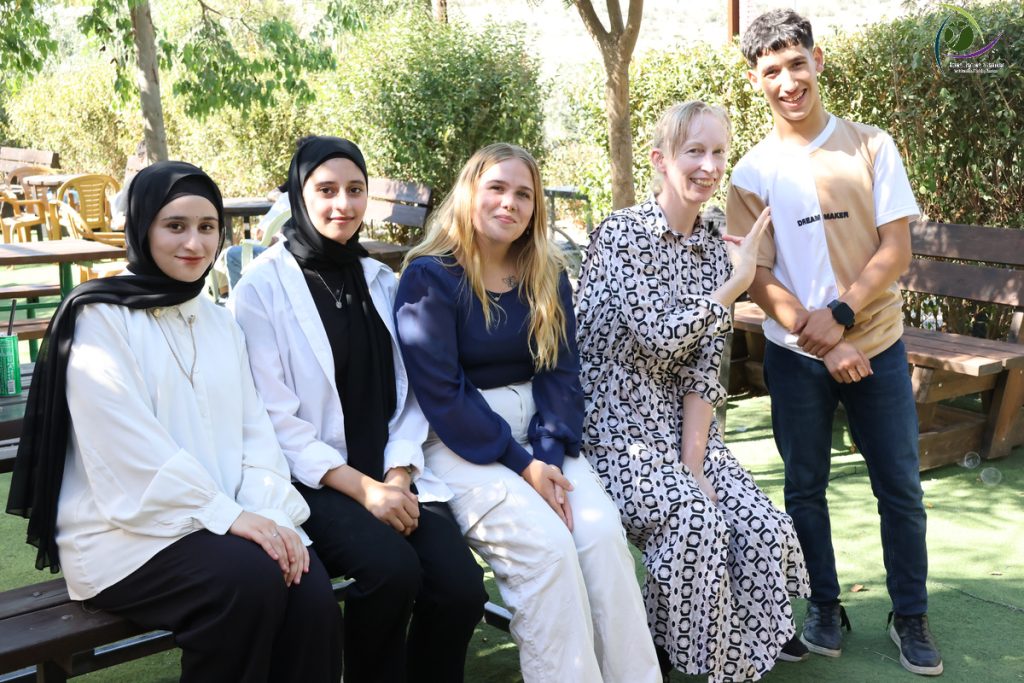
When asked about her experience overall, Eva says, “It is heavy to live here, because of the stories I’ve heard about the occupation and the things I see the people I now call friends having to go through. But this is so balanced by the resilience and the friendliness of the local people. The way they choose to respond under these circumstances is nothing short of inspiring. I encourage everyone to come and experience it for themselves.”
Why do Palestinian people love their foreign guests?
Palestinians are very welcoming towards foreigners, and there are a couple of key reasons for this. First, Palestine is not at the top of most people’s holiday destination list. There aren’t many tourists who come to the West Bank right now, especially to cities in the south like Hebron. People know that tourism helps the economy, especially supporting small and locally owned businesses, and so they really welcome foreign guests.
Another reason why Palestinians are so welcoming of foreigners is that it helps to show solidarity in the Palestinian cause. The world over, the media tends to misrepresent Palestine, showing a real asymmetry in reporting. This means the Palestinian story is not told in full or fairly to the world. Having foreigners come to spend time in the West Bank, to meet its people and taste its food, and visit its beautiful cities, is to help show the world a side of Palestine that is not often spoken about. It also helps to show people what is really going on with life under occupation, and to help spread the word about supporting Palestine to friends, family, and maybe even local media when they go home.
Palestine is a small country, but it will impress you
Palestine is small, but it is mighty! There is so much to see and do and experience even in the small spaces that make up the Palestinian-controlled Area C of the West Bank – just 18% of its land mass.
An area of rich historical and religious significance, you can visit places like the old city of Jerusalem, the birthplace of Jesus Christ in Bethlehem, and the cultural and cosmopolitan hub of Ramallah. While in Palestine, you must also try some of their delicious foods, like the sweet and cheesy kunefe (the best iteration is in Nablus!), delicious street-side falafel sandwiches, and traditional dishes like musakhan and mansaf.
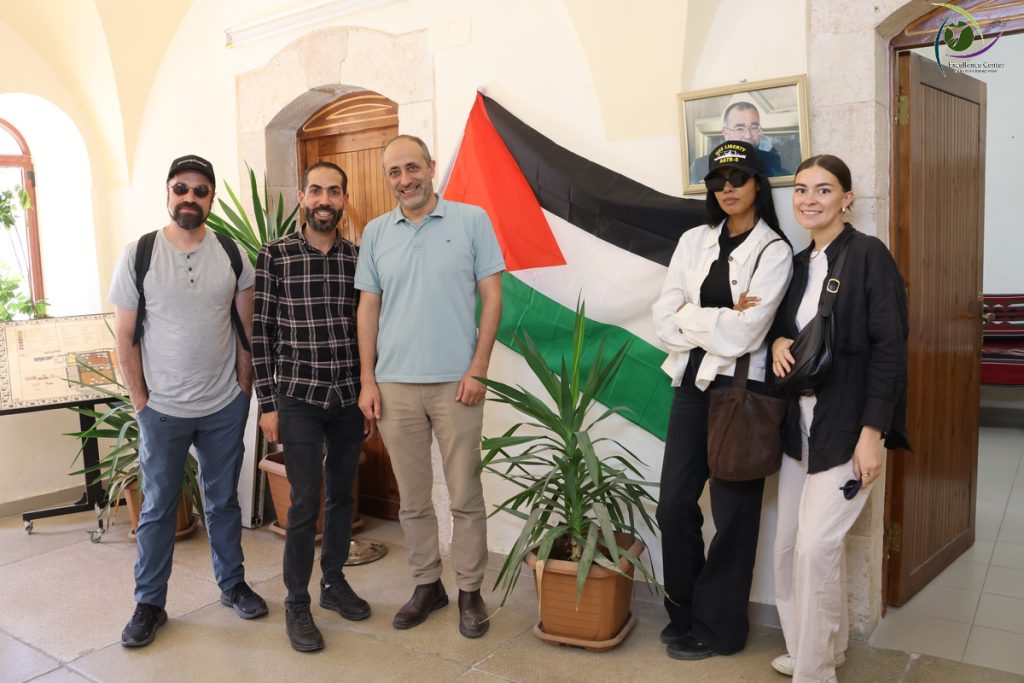
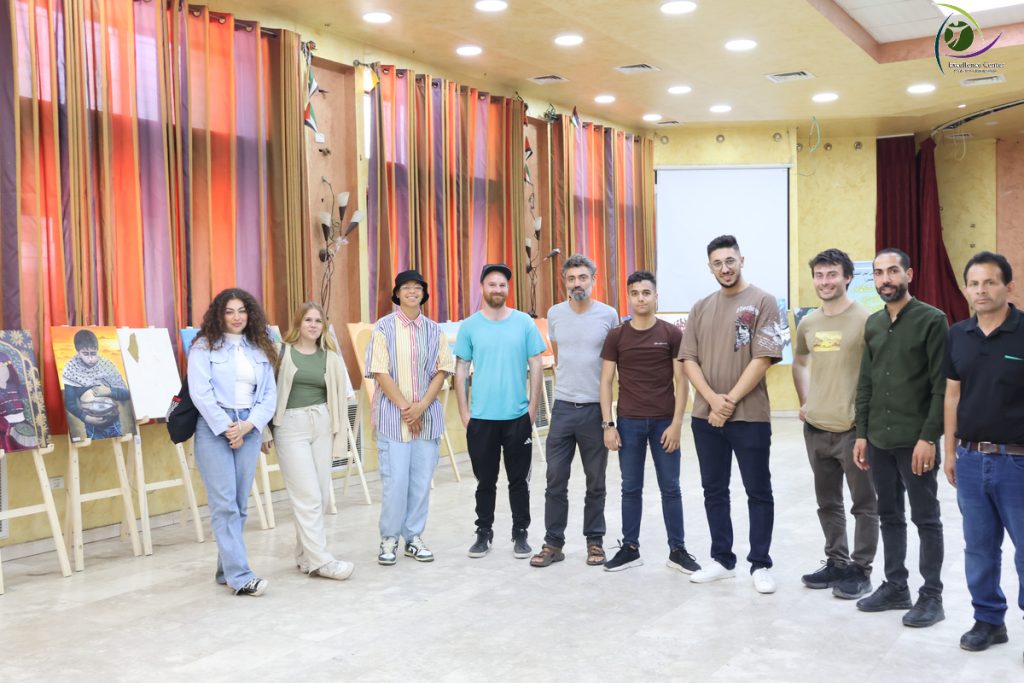
If you have these ideas about Palestine, change them now
Some people might think about Palestine and just see a war-torn place. We can tell you from first-hand experience that is not the case! The West Bank is open for people to come and visit, and usually has a higher rate of tourism, especially to places like Bethlehem and Jerusalem. Since October 7, rates of tourism have dropped dramatically because people think it isn’t safe to travel. This has impacted small businesses that rely on tourism. There is a great variety of things to do and see on your travels to Palestine – people just need to know that it’s safe to travel here, no matter their impression from the news.
Why do internationals love to come to Palestine again?
In the same way that Palestinians love to see and interact with international people, international people also love to come and spend time in Palestine. Why? Because of the welcoming atmosphere, the great food, the interesting history of the area, and the beautiful landscape.
On top of being a great place to spend time, internationals also love to come to Palestine to support the people and the Palestinian cause. One of the most pressing humanitarian and human rights issues of our time, Palestine has captured the world’s attention and sympathy. Many of the volunteers who come to the Excellence Center are happy to come and help the local community where they can.
What makes Palestinian people friendly to foreigners?
Palestinians are friendly with foreigners because they like to learn more about the world around them and other cultures. It’s expensive and difficult for many Palestinians to travel, so interacting with foreigners is, for some of them, their best opportunity for cultural exchange.
Hospitality and generosity are also very culturally prevalent here in the West Bank. You might find yourself being invited to someone’s house to have dinner with them or visit their family after only one meeting. There’s a high likelihood you’ll be offered coffee in many of the shops that you walk into, or that people will even stop you in the street to ask where you’re from and welcome you. This might be a little strange at first, because many western countries are not really like this, but just know it’s how people are here – friendly, and ready to welcome new people.
Studying Arabic in Palestine is a totally different story
Arabic is a beautiful language, but also quite difficult to learn. The wide variety of dialects can make it a bit confusing to know which one to choose. And while it can be easy enough to learn the alphabet and even start to read, speaking well only really comes by practising with native speakers. This is one of the reasons why any aspiring Arabic speaker should try to spend some time in an Arab country. Immersion really helps to accelerate the language learning process.
Have you ever visited the Dead Sea?
The Dead Sea is one of the most incredible naturally occurring phenomena in the world. A highly salinated body of water between the West Bank and Jordan, the Dead Sea is the lowest place on earth. It is so salty that nothing grows within it, and when you go to swim in it, it keeps you buoyed without needing to use any kind of flotation device.
But beware! You can get dehydrated really easily when swimming in the Dead Sea, so make sure you keep up your fresh water intake. It’s also wise not to get the water in your eyes or in any cuts you might have on your body. Good swimming spots at the Dead Sea are accessible through hotels and resorts on the side of Jordan and the Dead Sea.
Palestine is safer than you think
A lot of people would hear about Palestine and automatically think that it isn’t safe for international travellers. This is a common misconception. The occupation of Palestine is designed to restrict the movement and lives of Palestinians, not international guests. While some things about the occupation can be annoying for international people, like long waits at checkpoints or ID checks, there is no risk of harm for foreigners. Since its inception in 2011, the Excellence Center has safely welcomed thousands of international volunteers, who have had exceptional experiences. If you don’t believe us, then read their reviews for yourself!
What is so special about Hebron?
Hebron is the economic hub of the West Bank. It is a big city, but the friendliness of the people means that it has a really nice country town vibe. As a more religiously conservative city, you might see people doing some of their daily prayers at cafes or restaurants, even on the side of the street.
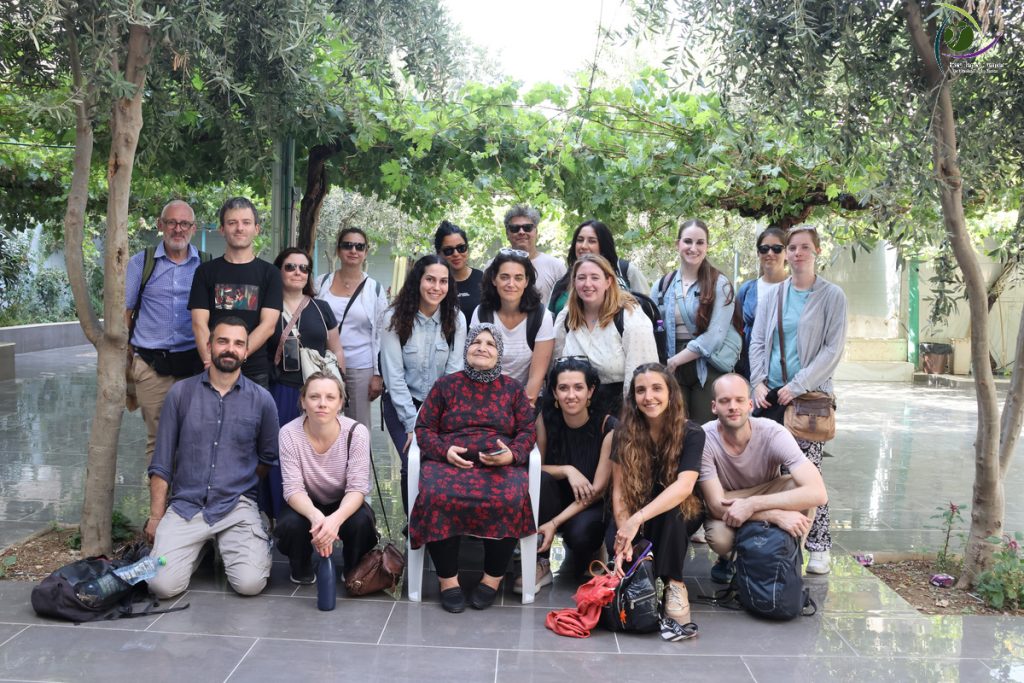

One of the main attractions in Hebron is the Ibrahimi Mosque, where it is said the prophets Abraham, Isaac, and Jacob are buried. It is known as one of the holy sites in Islam. To get to the Ibrahimi mosque, you can walk through the beautiful old city of Hebron.
What really makes Hebron unique is that it is split into two parts – Palestine-controlled H1 and Israel-controlled H2. Checkpoints separate the two sides, meaning Palestinian residents of H2 need to have their IDs checked every time they wish to pass through to H1 for school, work, or shopping.
What might make you hesitate to come to Palestine?
What you hear on the news about Palestine might make you ask yourself if it’s safe to come here. The best way to answer this question is to tell you about the experiences of some of our past volunteers, and how they felt coming to stay in Palestine. Sara, 25, from the United States, talks about her experience:
“As an American, I have been inundated for years with nothing but images of war, hatred, and suffering in the Middle East. My family was terrified for me, because they thought I would be in grave danger just by being here.
“However, the reality is very different. Hebron is an incredibly safe and friendly city, and Palestine in general is very safe for international visitors coming to the country. There has never been a time when I felt like I was in danger, and the people here do everything they can to make you feel at home and welcome.
“From being invited into random shops and places for coffee and conversation, talking with strangers on the street as we practiced each other’s language, there is a culture of hospitality here in Palestine, and I have never felt as strong a sense of community as I have here.”
Would I love to live in Palestine?
If the answers in this article haven’t convinced you yet, there’s only one way to find out – come and see for yourself!
We (and all of our past volunteers) think Palestine is an incredible place and a really rewarding and life-changing experience. If you’re looking for a meaningful way to spend your time, then a volunteer program at the Excellence Center might be the right choice for you.
Simply reach out to our team at rafat@excellencecenter.org for more!
